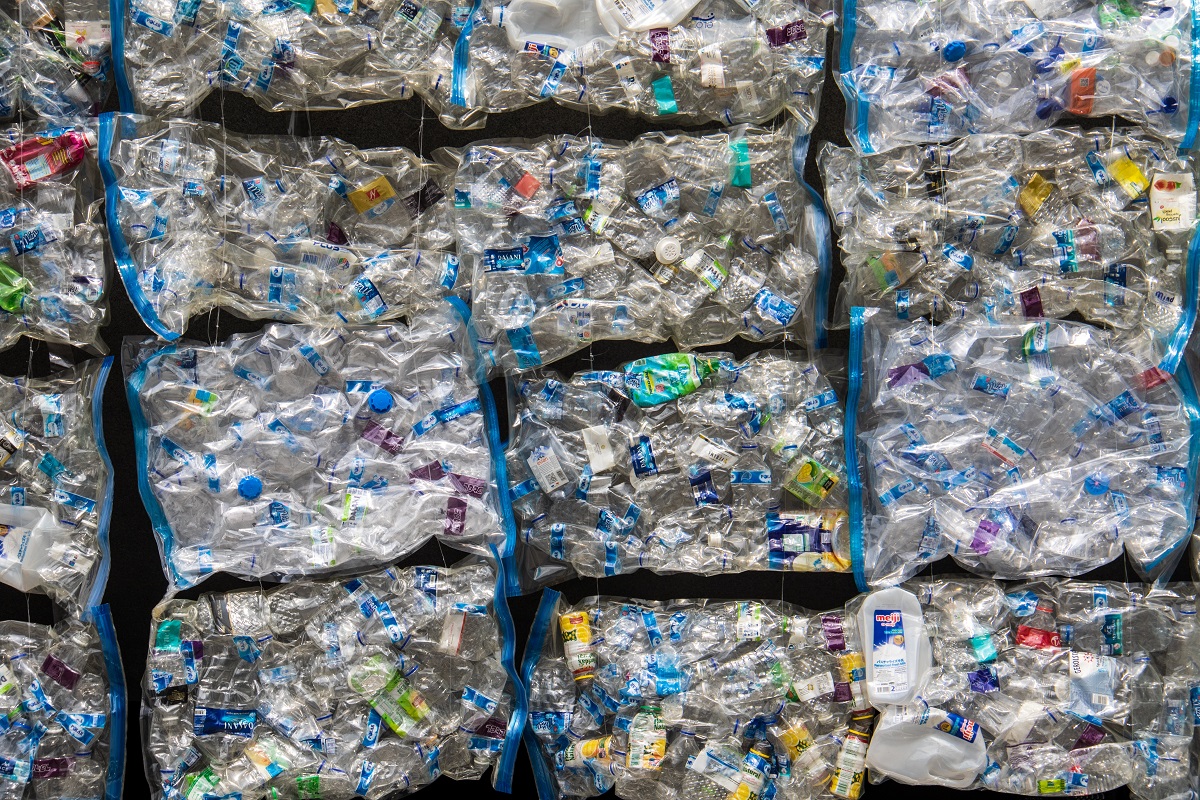
ISTC is part of a national team to develop artificial intelligence technologies to sort non-recyclable plastics so they can be reused for fuels. The U.S. Department of Energy has awarded the team $2.5 million to complete the three-year project.
Plastics recycling in the U.S. typically requires manual sorting as workers pick out the useful kinds of plastic from conveyor belts and discard the non-recyclable types. This process is labor-intensive and expensive. In this new project, scientists are using high-tech sensors developed by UHV Technologies, Inc. and commercialized through its spin-off Sortera Alloys that will detect specific chemical-based “fingerprints” of each kind of plastic polymer, classifying them through a new system and sorting them into different bins.
“Sensor fusion and artificial intelligence algorithms used in the process will increase the speed and accuracy of plastic sorting, eventually making the technology more economical with a cost goal of less than $30 per ton,” said BK Sharma, co-principal investigator of the project.
Sensor fusion will generate a unique fingerprint for plastic pieces, while deep learning and artificial intelligence algorithms will create a novel classification system for the plastics.
Another challenge for the project is to reduce plastic contamination, a major reason why plastics end up in landfills. One of the project goals is to develop low-cost methods that decrease contamination to less than 5 percent. Improving the purity of plastic waste increases its potential and value for reuse.
A successful process that produces clean plastics, separated by type, could offer marketable products while diverting non-recyclable materials (plastics #3–#7) from landfills. Sharma’s primary role will be to use the catalytic pyrolysis process to determine if the plastics can be used to produce valuable products, primarily diesel or aviation fuels along with gasoline, naphtha, and waxes.
Besides ISTC, the team includes:
- UHV Technologies, which has created sorting technologies for other products;
- The Idaho National Laboratory, to complete chemical composition analysis and screening techniques; and
- The Solid Waste Authority of Palm Beach County, which will help to integrate the proposed technology into the existing recycling industry.
“At the end of the project, if we can come up with a process that can convert mixed plastic into a low-cost feedstock to produce different types of fuels and other products, that will be a big success,” Sharma said.
—-
Media contact: BK Sharma, 217-265-6810, bksharma@illinois.edu
news@prairie.illinois.edu
This story originally appeared on the Prairie Research Institute website. View the original story here.

